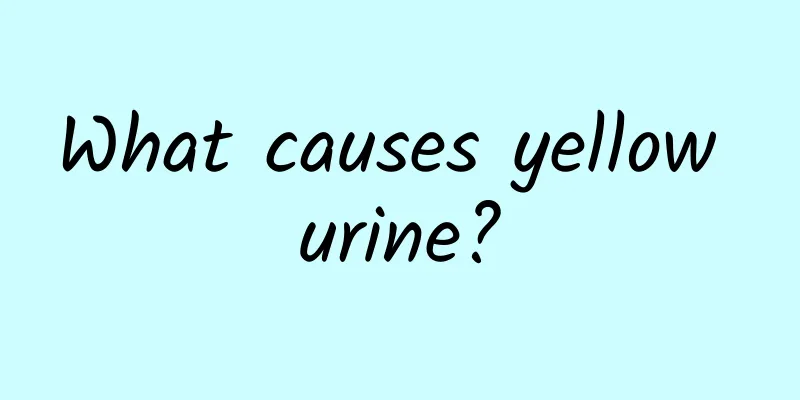Small transparent blisters on hands

|
Small blisters on the hands are a common phenomenon in summer. The general cause of this phenomenon is dyshidrotic eczema. The main group of people affected is young people, and the main time of onset is at the turn of spring and summer. When the disease occurs, it will be accompanied by varying degrees of itching. At this time, do not scratch it with your hands, but go to the hospital for treatment in time. Here we will introduce the characteristics, hazards, prevention and treatment methods of dyshidrotic eczema, as well as precautions. 1. Characteristics of small blisters on the hands Many friends develop small blisters on their hands in the summer, almost on every finger, and sometimes the itching is unbearable. I went to the hospital and got some ointment, but it didn't work. This phenomenon is quite common and is called dyshidrotic eczema in medicine. Dyshidrosis is a type of skin eczema that occurs symmetrically on the sides of the hands or feet. Because it occurs in the hands and feet where sweat glands are particularly developed, and blisters are the main symptom, it is named dyshidrotic eczema. 1. The occurrence of dyshidrotic eczema has obvious seasonality. It often occurs at the turn of spring and summer and heals itself in winter. It mainly occurs in young people. 2. It is now generally believed to be a skin eczema-like reaction, which is related to factors such as mental stress, excessive sweating of hands and feet, fungal infection and allergic reaction. 3. Symmetrical occurrence on the palms and soles, deep in small blisters, occurring in batches, with tense blister walls, millet to rice-grain size, hemispherical and slightly raised above the skin surface, visible on the palms, sides and fingertips, with no inflammatory response. After the blisters dry up, they peel off to reveal new skin, often accompanied by varying degrees of itching and burning sensation. 4. Dyshidrotic eczema often recurs regularly every year. 2. The harm of small blisters on the hands Dyshidrosis not only affects the appearance of the hands, but also often affects the patient's life due to itching. In severe cases, secondary infection may occur, causing swelling and pain in the hands. Because the cause of this disease is still unclear, Western medicine has no satisfactory treatment to eradicate it. 3. How to prevent and treat blisters on your hands There is no specific method for the prevention and treatment of this disease. In daily life, you should avoid spicy food, alcohol, coffee and other irritating foods, smoke less or no smoking, and use less or no alkaline soap, laundry detergent, and detergent to wash your hands. Do not pick at blisters or tear the skin. Local treatment is mainly to astringe and relieve itching. If the itching is severe, you need to go to the hospital for a check-up. IV. Precautions It is recommended that friends who have this phenomenon reduce contact with soap, alkali, laundry detergent, detergent, gasoline, alcohol and other substances in daily life; keep emotions open and avoid emotional frustration; do not tear off the shed skin with your hands to prevent infection and pus. If serious symptoms occur, go to the hospital for treatment and do not delay. |
<<: Itchy blisters on hands and feet
>>: How to massage the bulbous nose to make it smaller
Recommend
Do you know the best treatment for mastitis?
In real life, mastitis is a common disease among ...
Does not having swollen breasts mean that there is not enough milk?
For newborns, feeding mainly with breast milk wil...
How to inject buttocks
Generally speaking, people with colds and fevers ...
What are the symptoms of cerebral hemorrhage?
The occurrence of cerebral hemorrhage can pose a ...
What's wrong with the anal rupture?
Hemorrhoids are a common anal disease in daily li...
The efficacy and function of bear bile wine
Bears are protected wild animals. We all know tha...
The drug of choice for anxiety disorders
If the anxiety disorder is more serious, you can ...
Mugwort and Sichuan pepper for eczema
The weather is cool, which is the weather most pe...
What causes cracked tongue? Diseases from the tongue
The tongue is a window to health. Through this wi...
Salmonella infection
Salmonella is a common bacterium. It is one of th...
Septic shock
Sepsis is a disease with a relatively high incide...
What causes dry and itchy skin on face?
The skin on the face often has symptoms of drynes...
Acupuncture for anxiety
Nowadays, with the increase in work and life pres...
What is the most effective treatment for hand, foot and mouth disease?
Hand, foot and mouth disease seriously affects ch...
Causes of uremia in men
As technology in modern society becomes more and ...









